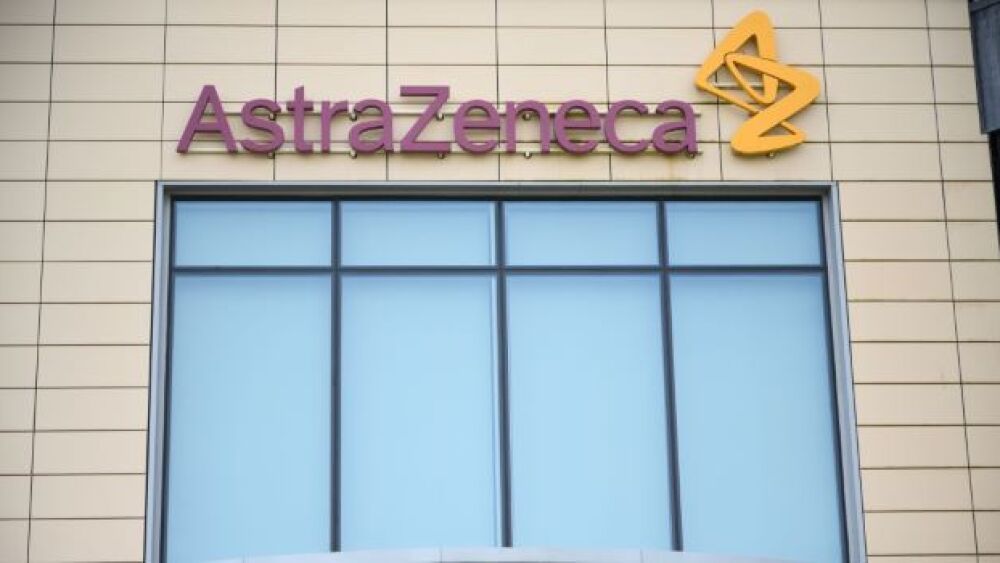The UK’s Competition and Markets Authority (CMA) will determine if the deal is anti-competitive.
Leon Neal/Getty Images
AstraZeneca’s $39 billion acquisition of Alexion is now being investigated by the UK’s Competition and Markets Authority (CMA), to determine if the deal is anti-competitive. On March 17, 2021, it was reported that the U.S. Federal Trade Commission (FTC) organized a multinational working group to evaluate pharmaceutical mergers.
Along with the FTC, the group included the CMA, the Canadian Competition Bureau, the European Commission Directorate General for Competition, the U.S. Department of Justice Antitrust Division, and Offices of State Attorneys General.
The commission’s goal is to “identify concrete and actionable steps to review and update the analysis of pharmaceutical mergers.”
At that time, the FTC was reviewing the AstraZeneca-Alexion deal. Alexion had filed with the U.S. Securities and Exchange Commission (SEC) at the time, indicating it planned to withdraw and refile its notification and report form under the Hart-Scott-Rodino Antitrust Improvements Act of 1976, “in order to give the FTC additional time to review the proposed transaction.”
The deal has since received the greenlight from the U.S., Canada, Brazil and Russia, but decisions are still pending from the UK, the EU and Japan. The deal was announced in December 2020. AstraZeneca wanted to bolster its immunology presence.
Two weeks ago, Alexion shareholders approved the deal.
“We’re very pleased with today’s affirmative shareholder vote, which brings us one step closer to completing a transaction that will accelerate the combined company’s ability to develop and provide access to life-changing medicines for patients with rare and devastating diseases around the world,” said Ludwig Hantson, Alexion’s chief executive officer, at the time.
Under the terms of the deal, Alexion shareholders would receive $60 in cash and 2.1243 AstraZeneca American Depositary Shares (ADS), with each ADS worth half of an ordinary AstraZeneca share. That comes to about $175 per share.
AstraZeneca’s market presence has typically been on oncology, cardiovascular, renal and metabolism and respiratory diseases. It increased its immunology R&D efforts in immune-mediated diseases.
Alexion’s focus is on complement inhibition, a part of the human immune system. Its branded products focus on immune-mediated rare diseases caused by abnormal activation of the complement system. These include Soliris (eculizumab), a first-in-class anti-complement component 5 (C5) monoclonal antibody.
Soliris is approved in several countries for paroxysmal hemoglobinuria (PNH), atypical hemolytic uremic syndrome, generalized myasthenia gravis and neuromyelitis optica spectrum disorder. The company’s Ultomiris (ravulizumab) is a second-generation C5 monoclonal antibody. Other products include Strensiq (asfotase alfa) and Kanuma (sebelipase alfa).
If the merger is finalized, the two companies will work to advance Alexion’s pipeline of 11 molecules across more than 20 clinical programs, many in rare diseases. Alexion’s immunology expertise is expected to support AstraZeneca’s presence in immunology and rare diseases.
At the time of the announcement, Pascal Soriot, AstraZeneca’s chief executive officer, said, “Alexion has established itself as a leader in complement biology, bringing life-changing benefits to patients with rare diseases. This acquisition allows us to enhance our presence in immunology. We look forward to welcoming our new colleagues at Alexion so that we can together build on our combined expertise in immunology and precision medicines to drive innovation that delivers life-changing medicines for more patients.”





